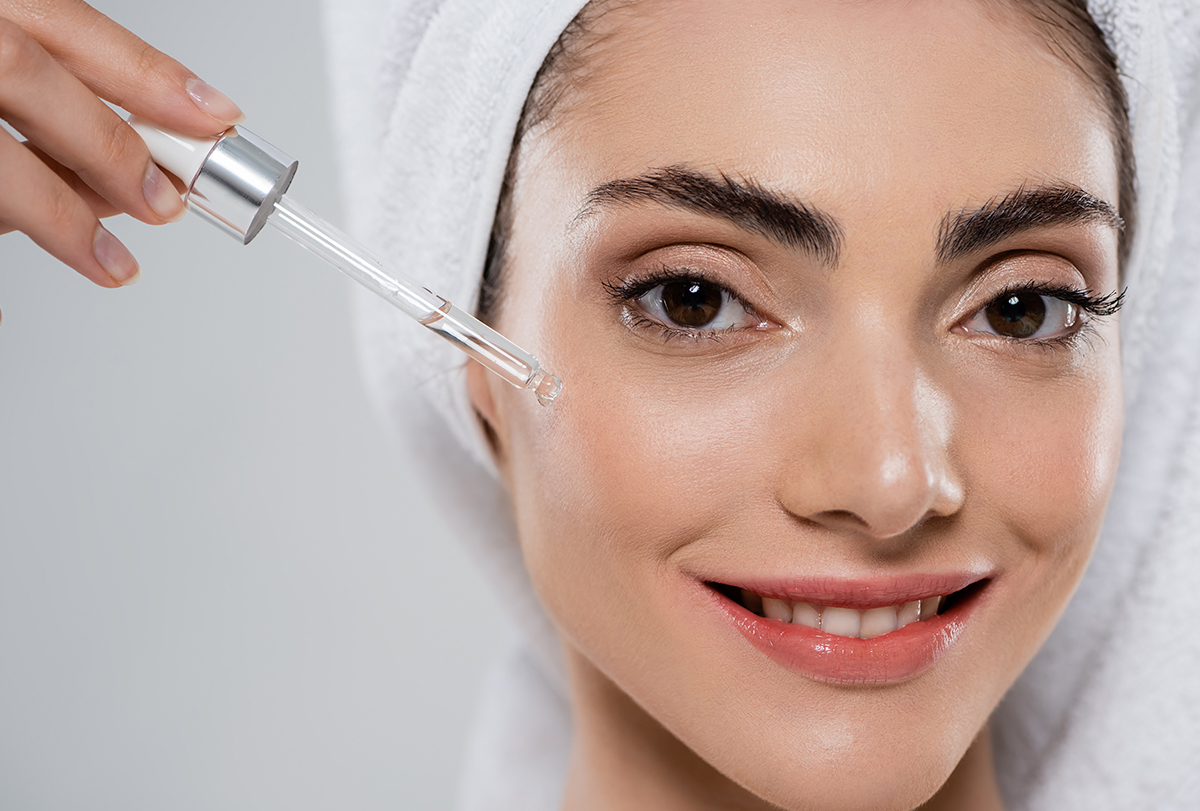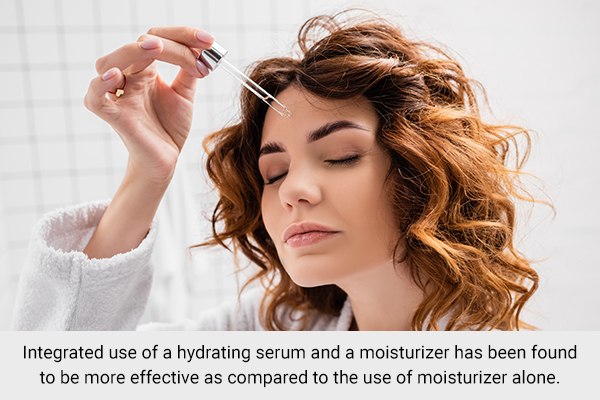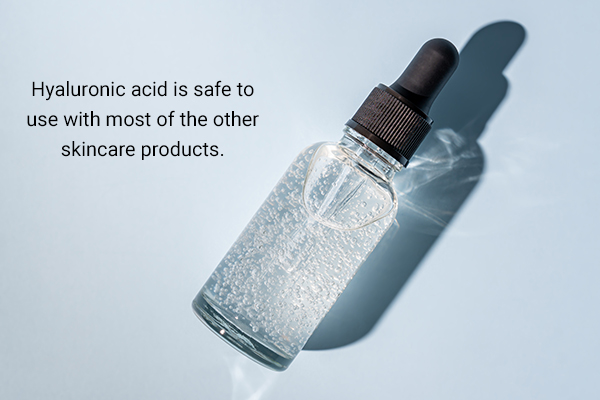In this article:
Hyaluronic acid skin care products usually come in the form of moisturizers and serums, which are widely used.

According to research data, the combined hydration and softening benefits from using both a serum and a moisturizer are much better than using a moisturizer alone. (1)
So, the use of a hyaluronic acid serum under a moisturizer can very well be a good measure for the skin. But you have to make sure not to use a hyaluronic acid concentration that exceeds 2%. (2)
Moreover, use a serum with 0.5%–1% hyaluronic acid concentration if you plan to use a hyaluronic acid moisturizer as well. (2)
Read on to know more.
What Is Hyaluronic Acid?
Hyaluronic acid is a naturally occurring substance that is present in the extracellular matrix of connective tissue and can be obtained in different forms. Its diverse range of capabilities includes skin rejuvenation, wound recovery, tissue revitalization, anti-inflammatory effects, and modulation of the immune system.
Due to its impressive biomedical and regenerative properties, hyaluronic acid has become a crucial ingredient in cosmetic and nutricosmetic products.
Research has indicated that hyaluronic acid preparations offer notable advantages in minimizing wrinkles, smile lines, and signs of aging, as well as enhancing skin moisture, encouraging the generation of collagen and elastin, and renewing facial fullness. (3)
Why Should I Use a Hyaluronic Acid Serum if I Already Have a Moisturizer With Hyaluronic Acid in It?

Studies show that, due to its significant capacity to bind water, hyaluronic acid has a greater skin hydration property than any other polysaccharides.
In one study, a facial hydrating serum that contained vitamin B5 analogs with hyaluronic acid was developed to repair and replenish the skin. Clinical assessments during the study demonstrated statistically notable improvements in facial skin parameters after 2 weeks of integrated use of the hydrating serum and a moisturizer in comparison to the use of moisturizer alone. (1)
One of the exceptional properties of hyaluronic acid is its capacity to attract and maintain moisture up to 1000x its own weight. The critical factor is to use hyaluronic acid in a moisturizer, which allows it to function effectively.
Because a moisturizer adds moisture to the skin, hyaluronic acid is provided with additional water to absorb and hold onto, preventing it from drawing moisture out of dry skin. Instead, hyaluronic acid attracts moisture to the skin’s surface and retains it, ensuring the skin remains hydrated throughout the day. (2)
What are the side effects of using both a hyaluronic acid moisturizer and serum?
One study reported no side effects to the combined use of a hydrating serum and moisturizer. Adverse effects from hyaluronic acid are not very commonly seen. (1)
Benefits of Using Hyaluronic Acid on the Skin
Hyaluronic acid offers the following advantages to skin health.
1. Promotes skin hydration
One of the most well-known benefits of hyaluronic acid is its ability to hydrate the skin, which is attributable to its moisture-retention properties. (4)
2. Promotes youthful-looking skin
Hyaluronic acid is crucial for healthy skin, as its moisture-retention capabilities can plump the skin and reduce the formation of fine lines and wrinkles. (4)
3. Facilitates skin flexibility
Hyaluronic acid is recognized to improve skin flexibility by making it supple and elastic. (5)
4. Accelerates wound healing
Hyaluronic acid can expedite wound healing by reducing inflammation and promoting cellular regeneration. (6)
Recommended Duration of Use
A German study has suggested that using hyaluronic acid for more than 3 months can potentially improve skin health such as improving skin firmness. (7)
Note: Prescription hyaluronic acid products should be used strictly as directed by a healthcare professional.
Most-Asked Questions About Using Hyaluronic Acid for Skin
Is hyaluronic acid safe to use with other products?

Yes, hyaluronic acid is safe to use with most skin care products. If you have any doubts or observe any unpleasant skin reactions, talk to your dermatologist before using hyaluronic acid and other products together. (2)
Can I combine niacinamide with a hyaluronic acid serum?
According to experts, it is acceptable to combine and apply niacinamide and hyaluronic acid serum simultaneously.
Niacinamide, a water-soluble vitamin B3, can enhance skin texture, diminish redness, and regulate sebum secretion, while hyaluronic acid, a moisturizing component, can draw in and hold onto moisture in the skin.
Combining these two ingredients can have a synergistic effect on the skin. One study found that the use of products containing both these active ingredients showed positive results on skin health with no reported adverse effects. (8)(9)
Can I use salicylic acid with a hyaluronic acid serum?
Yes, it is generally safe to use salicylic acid with a hyaluronic acid serum according to skin care experts.
Final Word
Hyaluronic acid is a natural component found in the body. Chemically, it is made up of polysaccharides, which are sugar molecules found in your eyes and joints.
Hyaluronic acid is a popular name in the world of skin care. This can be attributed to its powerful moisturizing power. This is the same reason why it is used as an active ingredient in products such as serums and cleansers.
It is also noted to offer various other advantages such as hydrating the skin and preventing fine lines and wrinkles.
- Was this article helpful?
- YES, THANKS!NOT REALLY


